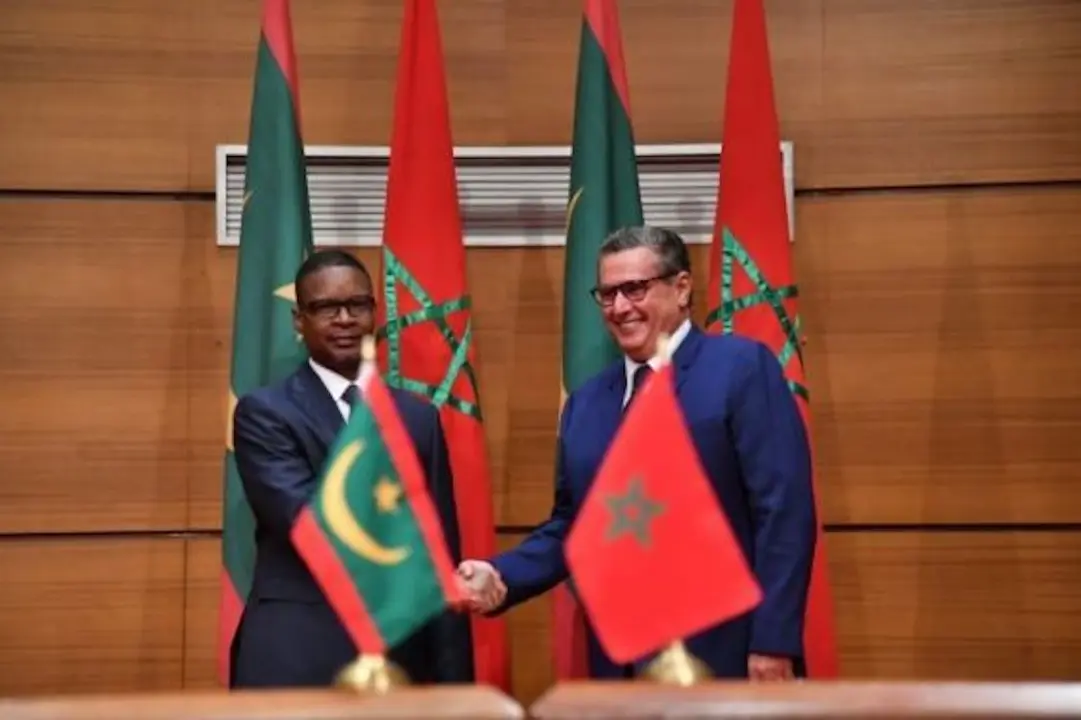Morocco, Mauritania and the new Sahel

It seems that it is no longer a secret that the Kingdom of Morocco is seeking to help the "G5 Sahel" group and to breathe new life into this project. A decayed project whose foundations are weakened since several of its members have suffered body and soul from the consequences of political instability caused by coups d'état, terrorist groups, Russian interference and political, social and economic clashes that divide their societies.
Morocco is trying to save the G5 Sahel project from final disintegration through an initiative announced by King Mohammed VI on the last anniversary of the green march, whose declared basis focuses on the economy and a partnership for development that is beneficial to the Sahel countries and to Morocco as well.
Moreover, explicit intentions and purposes revolve around this announced framework, including Morocco's desire to open an Atlantic window for trade with African Sahel countries and Rabat's persistent effort to play the role of liaison point and bridge between Africa and the European Union and the United States.
Nor is it hidden that the Moroccans are striving to integrate the southern ports into the African economic cycle and the political consequences of this by confirming the Moroccan nature of these regions. This did not sit well with the Polisario Front, which issued a communiqué warning of the danger of the new Moroccan approach to the security of the region.
Coming back to the new Moroccan vision on the region, it can be easily deduced and taking into account the geopolitical context that Morocco, which has been able to present itself as a "mature" partner for the Europeans, is working to convince Europeans and Americans of its ability to play the role of a "soft alternative" to fill the French vacuum within the circles of power in some Sahelian countries.
And to illustrate and explain it with a small example, the Moroccan holding AKWA Group took control of Total Mauritania, a subsidiary of the French brand, thus filling the French vacuum.
Among other objectives of the Moroccan vision, Morocco's announcement to open its Atlantic coastline to the Sahel and Sahara countries, which includes Niger, Chad, Burkina Faso and Mali, may entail something akin to a response to the Algeria-Mauritania road being finalized and which would have raised concerns in Rabat that this route would become a parallel and competing commercial passage to the Guerguerat pass.

In view of these developments, the question arises: where is Mauritania in all this? We are not exaggerating when many of us say that it is the first country to be targeted by the latest events taking place around it.
There is no doubt that we are facing a "disoriented Mauritania" in a context of dramatic changes that the region is undergoing and it is trying to come out with the least losses, as well as to avoid paying a price for aligning and positioning itself in the game of balances in the region by always trying to maintain a positive and cautious neutrality, similar in its difficulty to walking on a rope, with which this position requires speed in movement and precise calculation of the steps to take.
But when the "Zarg afam Lajiam" as is often said in hassani to refer to situations where danger is approaching, it is good to pay attention to the nature of positioning through new options.
Among them is the search for and exploration of approaches that help strengthen Mauritania's positive neutrality having as a horizon to avoid at all costs those scenarios that may harm the country's vital political and economic interests that would result from future scenarios.
In addition, it is necessary to work to maintain balances with countries and put on the table Mauritania's priorities in line with its geographical situation and taking into account its strategic interests.
This will require Mauritania to comprehensively rethink its position in the region and develop novel approaches to deal with its Maghreb and African neighborhood by strengthening its internal structures to cope with the unconventional external realities and variables that the region will experience.
This country, which many European analysts describe as "the sole survivor" of instability in the Sahel region, will certainly have to measure the limits of security and dangers and make the right decision before positive neutrality turns into a state of negative neutrality and lost opportunities.
Mohamed Lamine Khattary. Mauritanian journalist and analyst

